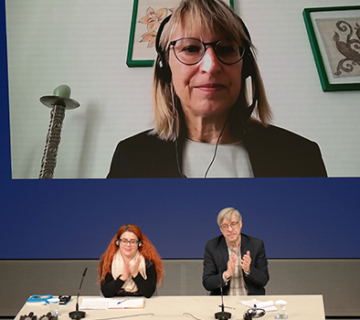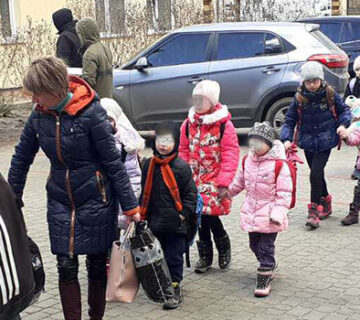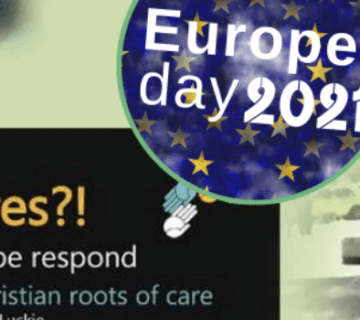 Much is said about liberty and equality, but what about fraternity? This was the main question posed by Chiara Lubich’s address, which she delivered at Westminster Palace, seat of the British Parliament. Also present were David Lammy, Minister of Constitutional Affairs (of African descent), and a Protestant member of the Unionist Party of Northern Ireland.
Much is said about liberty and equality, but what about fraternity? This was the main question posed by Chiara Lubich’s address, which she delivered at Westminster Palace, seat of the British Parliament. Also present were David Lammy, Minister of Constitutional Affairs (of African descent), and a Protestant member of the Unionist Party of Northern Ireland.
This was the last stage of the Focolare foundress’ trip to Great Britain, following her meetings with top Anglican, Catholic, Muslim, Hindu and Sikh leaders, which have opened up new horizons.
“Today a veil of skepticism hangs over politics, and we can’t get beyond it. People do not want to hear electoral campaigns anymore… Power cunningly corrupts those who have it in their hands … How can we hold on to power and at the same time fix our gaze on the objective of the common good?” These are just some of the points raised in the dialogue that took place between the politicians and Chiara Lubich.
 The vision of politics presented by the Focolare foundress was definitely innovative. She referred to the threefold slogan of the French Revolution, noting that with time liberty and equality have “become juridical principles and are applied as true and proper political categories.” She asked that the same recognition be accorded to fraternity. Only when these three aspects are taken together can politics respond to the emergencies of today, including terrorism. In this regard, she traced one of its basic causes to the growing gap between the rich and poor. Only fraternity can foster the circulation of goods and put solidarity in motion, she said.
The vision of politics presented by the Focolare foundress was definitely innovative. She referred to the threefold slogan of the French Revolution, noting that with time liberty and equality have “become juridical principles and are applied as true and proper political categories.” She asked that the same recognition be accorded to fraternity. Only when these three aspects are taken together can politics respond to the emergencies of today, including terrorism. In this regard, she traced one of its basic causes to the growing gap between the rich and poor. Only fraternity can foster the circulation of goods and put solidarity in motion, she said.
Utopia? Chiara Lubich cited the facts: over 3,000 politicians in different countries have already assumed fraternity as a political category. They are politicians from Europe and Latin America. They make up the Movement for Unity in Politics, launched by Chiara Lubich about 10 years ago. Giuseppe Gambale, member of the Italian Parliament, bore witness to this initiative, which by now has given rise to numerous activities. To cite just one, deputies of different parties have set in motion “a multi-lateral working group, aimed at introducing reforms in international cooperation, a job which has remained stagnant for years in the Foreign Affairs Commission. As a result, various points of convergence among existing bill proposals have been discovered. This is an example of a concrete contribution to tackling the wide economic and social imbalance between the northern and the southern hemispheres.”
In the context of an ever more conflictual kind of politics, fraternity means revising one’s attitude towards political adversaries, Chiara Lubich added. “One realizes that every political formation may be the answer to a social need, and is therefore necessary for the common good. Criticism can turn out to be constructive, to the point that one arrives at practicing the apparent paradox of loving the other’s party as one’s own, because the good of the country needs the work of everybody.” She went on to say, “This is the true politics that every country needs. Power confers strength, but it is love which bestows authority.” The meeting between Chiara Lubich and the politicians is the kind that will have continuity, one which promises that the periodic meetings which are already being held in other countries will take place in London, too.


 Italiano
Italiano Español
Español Français
Français Português
Português


